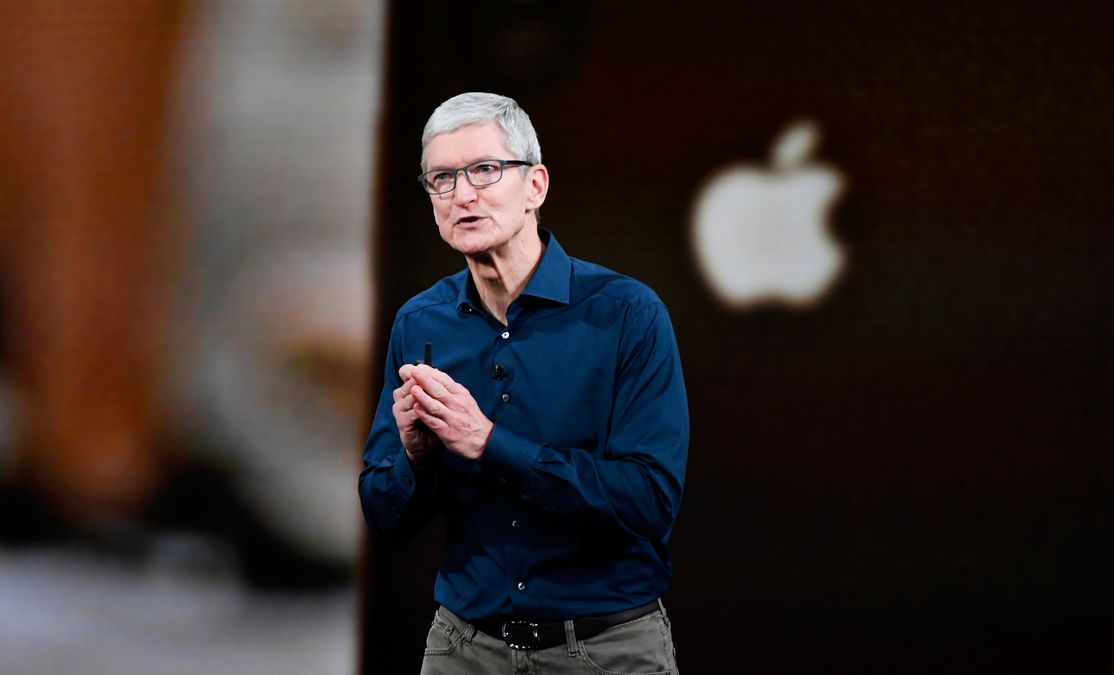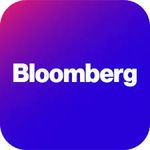Up next for Apple: HomePod 2, new AirTag wireless trackers
A smaller smart speaker plus a 'Tile-killer' tag will join the iPhone 12 generation later this year.

Apple is preparing the release of two key new accessories alongside a redesign of its top-tier iPhones, borrowing cues from the latest iPads, as part of a major refresh that will see 5G added to as many as four new handset models, according to people familiar with the plans.
On the radar: a smaller and cheaper version of its HomePod speaker, and so-called Apple Tags or Airtags that will let users track real-world objects like keys and wallets, according to people who’ve seen prototypes.
HomePod revisited
The new HomePod speaker is believed to be about half the size of the original while keeping a similar design. The device has been in development for several months and faced delays, and Apple is now targeting a release in the second half of this year.
Offering it at a lower price will help Apple better compete with cheap smart speakers from Amazon. and Google, which currently dominate the U.S. market. The HomePod has largely been seen as a failure in terms of sales, though its superior sound quality remains a competitive advantage.
Beyond price, the HomePod’s comparative lack of success has also been driven by its narrower compatibility with music streaming services and smart home products as well as the limited functionality of Apple’s voice assistant, Siri.
The company has been acquiring AI startups to help it bolster Siri, is hiring a team to revamp its smart home efforts and plans to add additional music services to the HomePod, including its top streaming rival Spotify, after criticism the company provides an unfair advantage to its in-house products.
Spotify on your HomePod?
Currently, Apple Music is the default music app. Keeping users tethered to Apple’s services is important to the company as the growth of smartphone demand slows and sales of music, video, cloud storage and other subscriptions make up a greater share of the iPhone maker’s total revenue.
If the company changes the arrangement, a user would be able to play music from Spotify or Pandora automatically when asking Siri for a song.
Last year, Stockholm-based Spotify submitted an antitrust complaint to the European Union, saying Apple squeezes rival services by imposing a 30% cut for subscriptions made via the App Store. Apple responded that Spotify wants the benefits of the App Store without paying for them.
As part of its complaint, Spotify singled out the inability to run on the HomePod and become the default music player in Siri, Apple’s voice-activated digital assistant.
Opening the HomePod to additional music service may be a boon for the product. The speaker has lagged behind rivals like the Amazon Echo in functionality since being introduced in 2018 and owns less than 5% of the smart-speaker market, according to an estimate last week from Strategy Analytics.
Tag, you're it
The Apple Tags or Airtags wireless accessory will offer functionality much like gadgets already on the market like Tile trackers, people familiar with the product said.
It's expected to be bundled with an Apple-designed leather sleeve and a keychain to attach it to objects.. The thin, small, puck-shaped tags have been in development for over a year and are planned for release as early as this year.
New iPhones for 2020
This year’s successors to the iPhone 11 Pro and iPhone 11 Pro Max will be joined by two lower-end models to replace the iPhone 11. At least the two high-end devices will have flat stainless steel edges instead of the current curved design as well as more sharply rounded corners like the iPad Pro introduced in 2018.
Reminiscent of the iPhone 5 design, the new handsets will have flat screens rather than the sloping edges on current models, said the people asking not to be identified because the plans aren’t public.
Because of disruptions caused by the coronavirus pandemic, at least some of the new iPhones could be released multiple weeks later than normal, though still within the typical fall window, people familiar with the launch plans said. Apple hasn’t informed suppliers of any significant delays, other people said, and its engineers are expected to travel to China and finalize product designs in May.
An Apple spokeswoman declined to comment.
Bigger screens, better cameras
The upcoming iPhone Pro models will include three cameras on the back while the lower-end phones will continue to have two cameras, as with the current lineup.
Apple will add the 3-D LIDAR system that debuted with the iPad Pro in March to its top-tier devices, setting the stage for advances in augmented-reality applications.
The highest-end new iPhone is set to have a screen slightly larger than the 6.5-inch panel on the iPhone 11 Pro Max. Apple is investigating removing the cutout at the top of the display for the selfie camera and Face ID sensors in future designs, and it’s likely to reduce that notch in size with this year’s models.
All the phones are planned to include a significant upgrade to the processor with an emphasis on speeding up artificial intelligence and AR tasks, people familiar with the devices said.
Since 2012, Apple has released major new iPhones each September, except for the release of the iPhone X in 2017 that came in November due to supply constraints.
This year, the company is navigating a global pandemic that temporarily slowed its China-based supply chain and has hurt smartphone demand due to a stalled global economy. Virus-fighting travel restrictions have also pushed Apple engineers to work primarily from home.
Given the uncertainty surrounding the spread of the novel coronavirus and the shifting economy, Apple’s launch plans and iPhone specifications could still change.
Apple is also working on a new version of the MacBook Pro, Apple TV, refreshed budget iPads and a new iMac, people familiar with its product roadmap said.
This article is published under license from Bloomberg Media: the original article can be viewed here

24 Aug 2011
Total posts 1209
It's interesting to see how technological advancement in the past 5 years has worked against Apple. 10 years ago Apple was seen as a true leader with killer products such as the iPhone whilst Microsoft was seen as being in decline relying on an Office product that had reached market saturation and was hard to force people to upgrade due to declining net benefits between each new release.
Now in 2020 Apple is hostage to one main product that doesn't demand upgrading to new releases due to minimal advances between versions as well as significant cost. Microsoft (and Amazon) has really dominated the new cloud world at both enterprise and home user level whilst Apple has only had limited success in the cloud with products such as Apple Music and Apple TV being a long way behind the market leaders and with Apple having no real presence in the corporate cloud market currently dominated by Azure and AWS.
Apple remains principally a hardware company and that is now a problem particularly as they haven't had a killer product in 10 years.
22 Jul 2014
Total posts 14
As our household we have several Android and Apple products and i can tell you that Apple products are very reliable and still function the same way when it was new. My partners's iphone 6 never has any single issue for the last 6 years or so and still working perfectly fine. We also have many Samsung phones and they wont even pair with each others. All Samsung phones have glitchy performance after 3 to 6 months from date of purchase. Our ipad 2 still works fine after all these years of ownership.
Recently bought a Microsoft computer for $2000 and not even 2. months we had to get it fixed a few times and it has 16GB ram, intel 7 but our Macbook has intel 5 and 8Gb ram and Mac has superior performance and picture quality of Microsoft is not even half decent as Mac. After several years of ownership we did not have any issues with Mac and will never buy a Android product again. Android phones and Microsoft computers were hacked a few times and so such issue with Apple
17 Apr 2020
Total posts 2
I think you have a narrow focus, the Apple Watch and the AirPods alone are massive businesses with no successful competitors. Apple Music is now outgrowing Spotify hence the laters anti trust complaints to slow them down. But yes the iPhone continues to be the largest segment of their business, nothing comes close to its revenue or profitability. This Bloomberg article is rumours, we'll have to wait until later in the year plays out.
Qantas - Qantas Frequent Flyer
26 Sep 2014
Total posts 50
Apple doesn't have a 'problem' due to a lack of a 'killer product in 10 years' which is effectively saying Apple was better under Jobs. However, fun fact,
Apple is better under Cook. While Jobs was ‘innovative', Cook champions compromise and compromise has made Apple, contingent upon the day, the most valuable company in existence. Innovation, to an extent, requires that you focus on the few, while compromise looks at the wants of average person and introduces incremental advances that will cause them to upgrade. To say that ‘Apple is hostage to one main product, presumably the iPhone, ignores that behemoth that is AirPods which, in 2019, generated $6 billion in revenue and in 2020 is expected to generate $15 billion. Objectively, that seems like a ‘killer product'.
Under Jobs, Apple was about making ‘beautiful', ‘magical' and innovate products for the few. Under Cook, Apple is focused on market share by ensuring that your mobile is an iPhone which is their gateway to entrench you in the garden via services. Buy an iPhone and any price point and Apple will keep profiting from you via: Music, Pay, iCloud, Care, News+, TV+, Arcarde and heck, if you're in the US there's even a credit card which they are looking to expand to other markets. Innovation didn't get Apple to where it is today, compromise did and that's what's needed to appeal to the average consumer and ended those consumers in their services.
Hi Guest, join in the discussion on Up next for Apple: HomePod 2, new AirTag wireless trackers